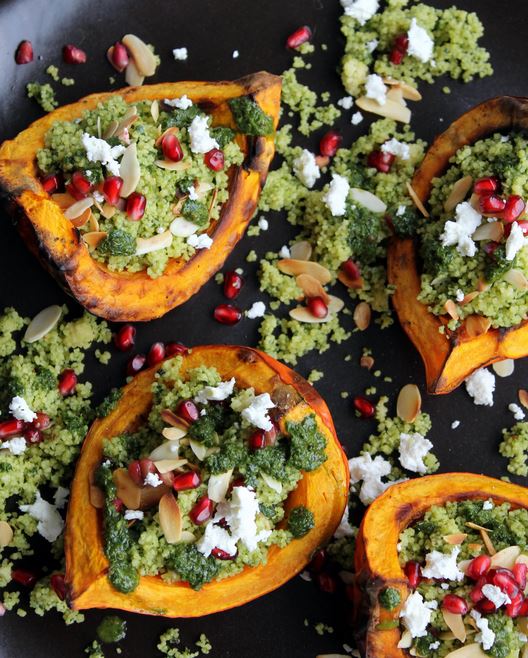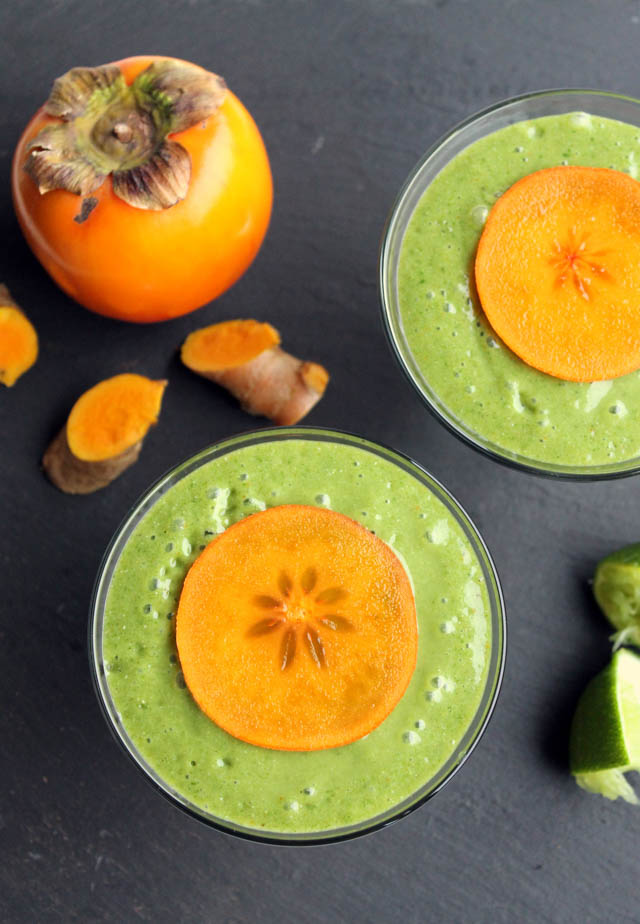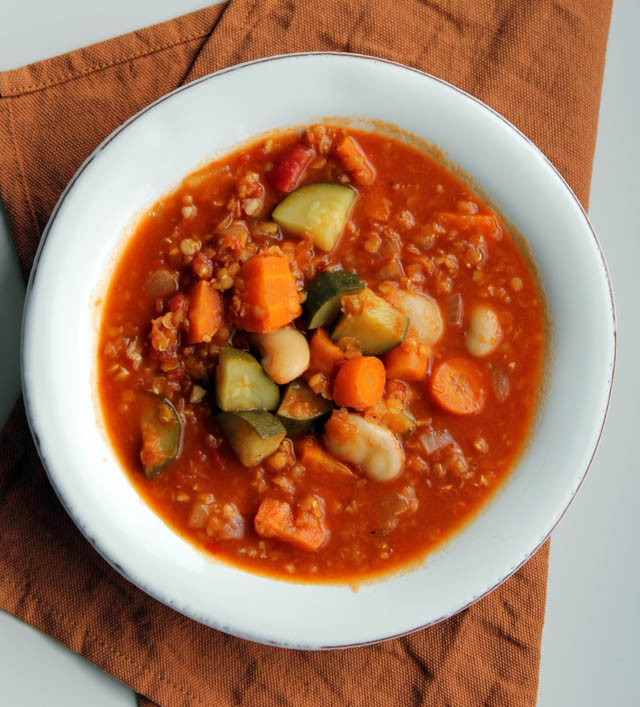Your Guide to Thriving (not Just Surviving) during the Holidays

Green Couscous Platter With
Roasted Squash, Feta, And Pomegranate
Nutrition and Lifestyle Strategies to Keep You Balanced in Body and Mind
The holidays are such a cozy, festive, and joyful time of the year. But for many us, December is also synonymous with hurried days and increased responsibilities to host, cook, decorate, attend, chauffeur, volunteer, shop, and gift. This probably means that we’re overextending ourselves and finding fewer moments for proper nourishment, exercise, and quiet time to recharge. And we feel guilty. Guilty for being “lazy,” guilty for enjoying those special treats, guilty that we’re not properly fueling ourselves as we run out the door to the next engagement, or guilty that we’re so busy getting things together we miss out on those fun and special family moments. We feel guilty, yet we still worry about making the festive times special enough.
So we excuse the failure to give attention to ourselves. Understandably so. Because is it possible for “busy schedule,” “holiday indulgences,” “health,” and “balance” to really exist in the same sentence? Yes, it is! Plus, is there anything worse than dealing with the aftermath of being utterly worn out, having sluggish digestion, and feeling burdened with this guilt that we let ourselves wander obliviously into during the holidays?
The reality is that it’s better to operate somewhere in the middle than in the extremes. It’s easier to spring back from slight, manageable fluctuations in eating and lifestyle routines than from a dizzying roller coaster ride where all we can manage is buckling in to survive it. But you may be asking, “How on earth can I keep these fluctuations in the manageable range without adding more stress, especially when so much during the holidays is out of my control?”
I have a few secrets to share. Drawing from nutrition and mindfulness research, I have created an action plan to keep us feeling balanced in body and mind this holiday season – one that will allow us to be present for those special moments, to enjoy the treats, dismiss the guilt, and feel good afterwards.
Your Three-Step Action Plan
1. Plan ahead: Weave balancing meals into your busy days by blocking out a 60-minute slot in your calendar to stock and prepare a few things in advance. This will ensure there’s something nourishing to eat even when there’s only five minutes to spare and you don’t miss out on any of the fun because you’re stuck in the kitchen.
- Stock your kitchen with ready-to-eat magnesium-rich staples: pumpkin seeds, spinach, cooked quinoa, canned beans, and dark chocolate – 80% cacao or higher. Magnesium is one of the first nutrients to be depleted when stressed, but it’s important for muscle relaxation, energy production, calming the nervous system and balancing mood!
- Eat spinach for breakfast. Have it in a smoothie or sauté and top with eggs. Studies show that those who ate spinach for breakfast experienced reduced hunger, increased satiety, and fewer sugar cravings throughout the day. Start your day with some greens and you’ll go to those dinner parties with a more manageable appetite and less risk of overdoing it.
2. Simplify: During the holidays, do you find there’s no time for that yoga class and your morning rituals and getting in those seven veggies a day? Instead of beating yourself up over it, adjust your expectations for what is possible. Here’s how:
- Trim down your daily routine to that one activity that will make the biggest impact on your mood and energy. It could be a brisk walk, 10 minute yoga session, five minute meditation, or making a veggie-packed soup to have on hand for lighter meals.
- Commit out loud. More likely than not, if you voice your plan – for example to get out for a walk or make a soup everyone will feel good eating – your family or guests will help hold you accountable. They might even share a similar need and decide to join you.
3. Discern, don’t deny: When it comes to enjoying holiday indulgences, we tend to lose perspective. We mistake over-indulgence for enjoyment because anything less would be denial. But this turns out to be faulty logic.
- Embrace the pleasure of discernment. Allow yourself to enjoy the one or two treats that you most look forward to on this special occasion, rather than mindlessly eating a little bit of everything. Research indicates our first few bites are the most enjoyable because we haven’t yet become habituated to the flavors and textures. Decide what you really love and save your taste buds for that. You’ll leave the meal more satisfied, with fewer cravings, and less risk of overdoing it later on.
- If you do go overboard (because we all do from time to time), be kind to yourself. We tend to fall into the “all-or-nothing” mentality. We draw global conclusions for how this setback reflects poorly on our character or judgement. Then we give up. But this exaggerated generalization is also false logic. Instead, bring perspective to the situation and confine the setback to that one evening or meal. Take a pause, wherever you are, and repeat the mantra, “A day is just a day”; or perhaps, “Tomorrow’s a new day.” This is not an excuse, but rather a tool to shift from a reactive state to a present, mindful state. Remember, our body is more resilient than our mind sometimes allows. Approach tomorrow with motivation and confidence.
Text and photos by Katie Schmidt
Katie is a certified health coach living with her husband in St. Gallen, Switzerland since 2012. She leads workshops on plant-based nutrition and cooking, publishes recipes weekly on her food blog, and offers health and nutrition coaching for clients seeking to make sustainable changes to diet and lifestyle. Visit her at http://www.wholenourishment.net
To find out more about how to care for yourself in stressful times, check out Katie’s article, Comfort Food, Redefined; sign up for her newsletter to receive weekly recipes, nutrition and wellness tips, or book a one-hour complimentary consultation with Katie (in person or over Skype).





